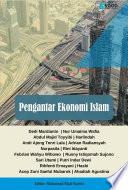
formative Evaluation for Educational Technologies
The designers of educational or training programs that employ electronic technology might have many questions about a project while it is still in the early stages of development. For instance: Is the program's presentation too simple, or too complex for its target audience? Does the pacing of the program help or hinder comprehension? Which aspects of the program are the most appealing, and why? Formative evaluation can answer these, or similar questions. It can help guide designers of television programs, microcomputer software, interactive videodiscs, or virtually any other educational item, in making modifications that can lead to the development of a final product that fully achieves its stated goals. Until very recently, however, the person interested in avoiding potential problems through the use of formative evaluation would have been faced with difficulties of a different kind. Comprehensive treatment of formative evaluation has been scarce, and published discussion on formative evaluation of computer-based materials has been virtually nonexistent. Until now, that is. Barbara Flagg's Formative Evaluation for Educational Technologies provides comprehensive treatment of formative evaluation. The book offers: * extensive coverage of all the methods evaluators might use to assess the user friendliness, the appeal, and the outcome effectiveness of an educational program. * extensive focus on new technologies * coverage of all phases of program development, from initial idea to final product * discussion of formative evaluation as part of the broader field of curriculum evaluation * numerous case studies. This volume will appeal to a wide variety of people engaged in formative evaluation. It is an excellent guide for newcomers to the field; it is a state-of-the art document for established practitioners of instructional design and curriculum evaluation.
- ISBN 13 : 1136462406
- ISBN 10 : 9781136462405
- Judul : formative Evaluation for Educational Technologies
- Pengarang : Barbara N. Flagg,
- Kategori : Education
- Penerbit : Routledge
- Bahasa : en
- Tahun : 2013
- Halaman : 275
- Google Book : https://play.google.com/store/books/details?id=j1UFiUs6JRUC&source=gbs_api
-
Ketersediaan :
A study of formative research practices for the AnnenberglCPB projects: The first five years. Unpublished manuscript, Research Communications Ltd., Chestnut Hill, MA. Crane, V. (1985b, January). Formative research for television: ...









